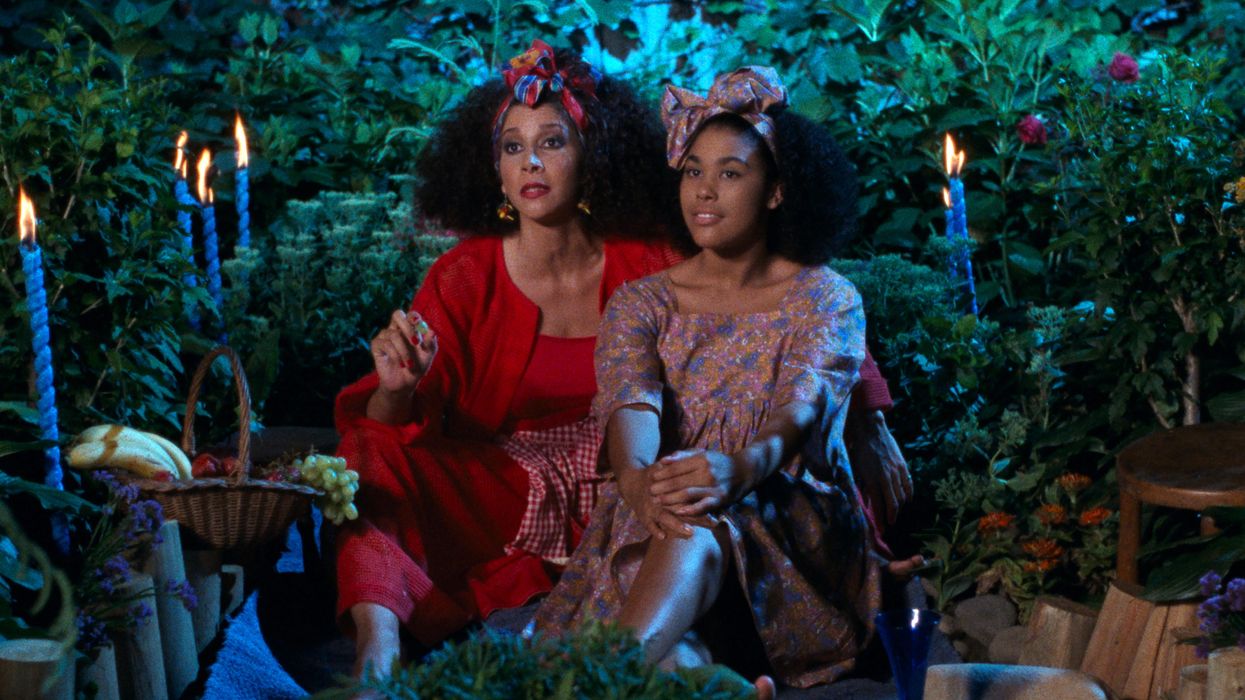This Weekend: MFAH Puts Black Female Directors in the Spotlight with Film Fest

'Alma's Rainbow'
THIS WEEKEND, FEB. 3-5, the Museum of Fine Arts, Houston presents Through the Lens of African American Women, a mini-festival of four films and one short, all directed by Black women. The lineup was curated by UH graduate Autumn Johnson, who interned with the MFAH film department last summer and produced the short film This is Real Life, which has earned 70,000 views and counting on YouTube. As Houston is home to such talented Black female film directors as Candice D’Meza, Lisa E. Harris and Brittany Bass, and this being Black History Month, the festival is timely and will resonate with anyone interested in great, independent filmmaking.
The festival kicks off with Alma’s Rainbow (1994), directed by Ayoka Chenzira, a coming-of-age drama starring Victoria Gabrielle Platt as Rainbow Gold, a teenager trying to make sense of societal standards of beauty, her self-image, and the rights Black women have (or lack) over their own bodies.
Preceding the screening is Chenzira’s animated musical satire Hair Piece: A Film for Nappyheaded People (1984). On Saturday, the festival screens the buzz-worthy surreal art-school-meets-art-world satire The African Desperate (2022), directed by Martine Syms, and starring Diamond Stingily as an MFA candidate desperately trying to get out of upstate New York and back home to Chicago. Saturday is also the date for The Watermelon Woman (1996), directed by Cheryl Dunye, in which a filmmaker, played by Dunye, explores the legacy of a fictional Faith Richardson, a “lost cinematic ancestor glimpsed in 1930s race films.” Described as a landmark of the New Queer Cinema, the film switches from 16mm to grainy video tape, with black-and-white “archival” footage of Richardson. A live, virtual Q&A with Dunye follows the screening.
The festival concludes on Sunday with the experimental feature-length film Compensation (1999), directed by Zeinabu irene Davis. Inspired by the poem of the same name by African American poet Paul Laurence Dunbar, and set in turn-of-the-century and present-day Chicago, Compensation tells the story of a deaf woman and a hearing man, two couples living decades apart, who fall in love. With the needs of both hearing and deaf viewers in mind, Davis uses silent film techniques and subtitles throughout, as the unfolding narrative addresses issues of racism, disabilities and discrimination.
- MFAH’s New ‘Culinary Canvas’ Series Is a Feast for the Eyes and Palate ›
- Lynn Wyatt’s Fave Flicks Will Screen This Month in New Theater Named for Her ›
- Listen Up, Cool Cats! Film Series at MFAH Spotlights Jazz ›
- MFAH Screens ‘A Beautiful Mind’ and More Math-Savvy Movies This Month ›
- This Weekend: Urban Souls Dance Company Celebrates Black History Month - Houston CityBook ›
- Ring in a Rainy Weekend with the MFAH's French-Kissed Film Fest - Houston CityBook ›
- A Techno Dance Party with Harriet Tubman?! Preview a Houston Playwright’s Ambitious — and Fun — New Show - Houston CityBook ›
